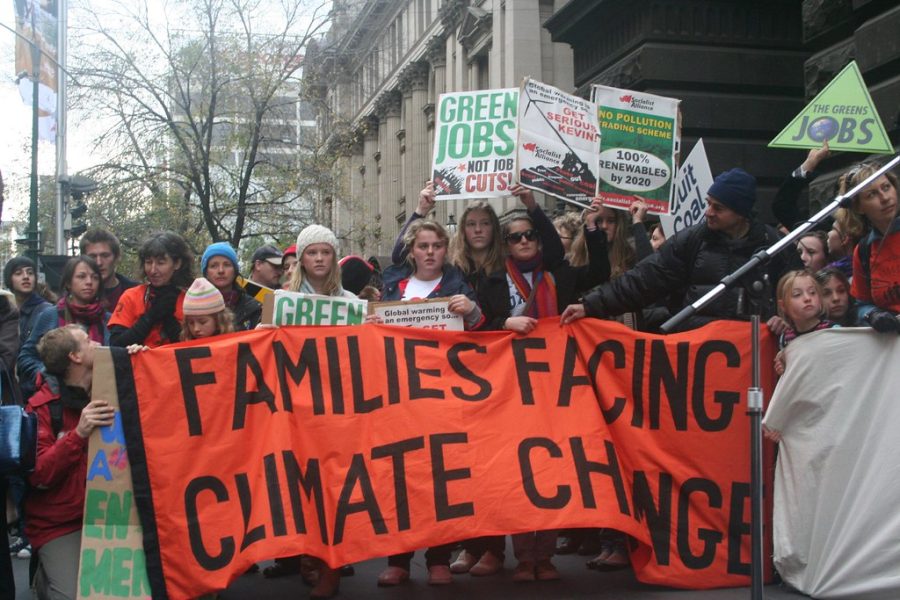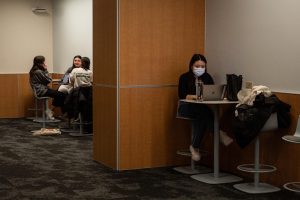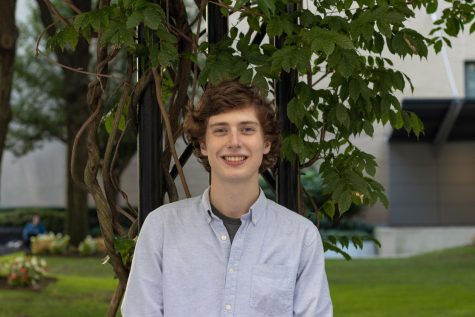Making Sense of Suffering
Tips for keeping a positive outlook while remaining informed about challenging world events
March 24, 2022
We are living in a troubled world. Currently, the Russian invasion of Ukraine and its accompanying nuclear saber-rattling overwhelms our news feed. The seemingly never-ending flow of violence and suffering can chip away at your optimism and instill feelings of dread rather than hope for the future.
For those of us who are distanced from the conflict, it can feel like nothing will ever improve. But moments of uncertainty and the uncomfortable feelings they bring are also opportunities to address these issues in a healthy and productive manner.
What Is Anxiety?
Anxiety is the feeling of fear and agitation in response to a real or perceived situation that is out of your control. It is the foundational experience from which we as individuals must navigate in order to improve.
Anxiety that stems from a world event can lead to obsessive searching for news updates or social media discussion around the topic.
Jeffrey Ng, director of Fordham’s Counseling and Psychological Services (CPS), stated that anxiety is a perfectly natural response to larger world issues, but how we respond to anxiety can either alleviate or worsen our mental state.
Anxiety that stems from a world event can lead to obsessive searching for news updates or social media discussion around the topic — a habit which Ng said “can become concerning when it persistently impairs day to day functioning and activities.”
How to Navigate Stress
The lifestyle changes and suffering inflicted by the COVID-19 pandemic are notable examples of how world events affect the overall mood of society at large. Young people in particular have experienced more mental strain due to the pandemic. Studies have shown that COVID-19 brought increased rates of anxiety, depression, stress and loss of sleep for a significant portion of the worldwide young adult population.
But just as much as our environment and habits affect our individual moods and levels of anxiety, we also adapt our behaviors to not only restore our moods but also grow stronger from them.
For those experiencing anxiety or stress related to world events, Ng recommends that they “try to be more self-compassionate and to take up some form of gratitude or contemplative practice.” Practicing self-compassion means accepting our perceived failures or shortcomings and giving ourselves the same sympathy and understanding as we do to others with similar grievances.
For instance, those of us concerned with the ongoing invasion of Ukraine by the Russian military may find solitude in donating to refugee aid organizations rather than constantly seeking news updates of the conflict. We can divert our energy from taking in the scenes of the conflict — and the accompanying anxiety and sadness from the loss of life associated with it — and redirect it toward feasible actions such as donating to charities or demonstrating solidarity with Ukrainians instead.
Unfettered frontline coverage can easily drive people to “doom scroll,” where people attempt to gain as much information on an ongoing tragic event as possible. Doom scrolling only leads people to be fully aware of the tragedy without any direct means to do something about it. This in turn can cause anxiety and stress to skyrocket.
“I would want these students to know that their emotions and worries are understandable and valid.” Jeffrey Ng, director of CPS
To lessen these effects, Ng advises people to limit how often they view news updates on the conflict and to be more discerning with their social media content.
Ng wants students to know that they are not alone.
“I would want these students to know that their emotions and worries are understandable and valid. I’d also encourage them to carve out the space to honor and attend to their feelings and, if possible, to do so in community.”
















